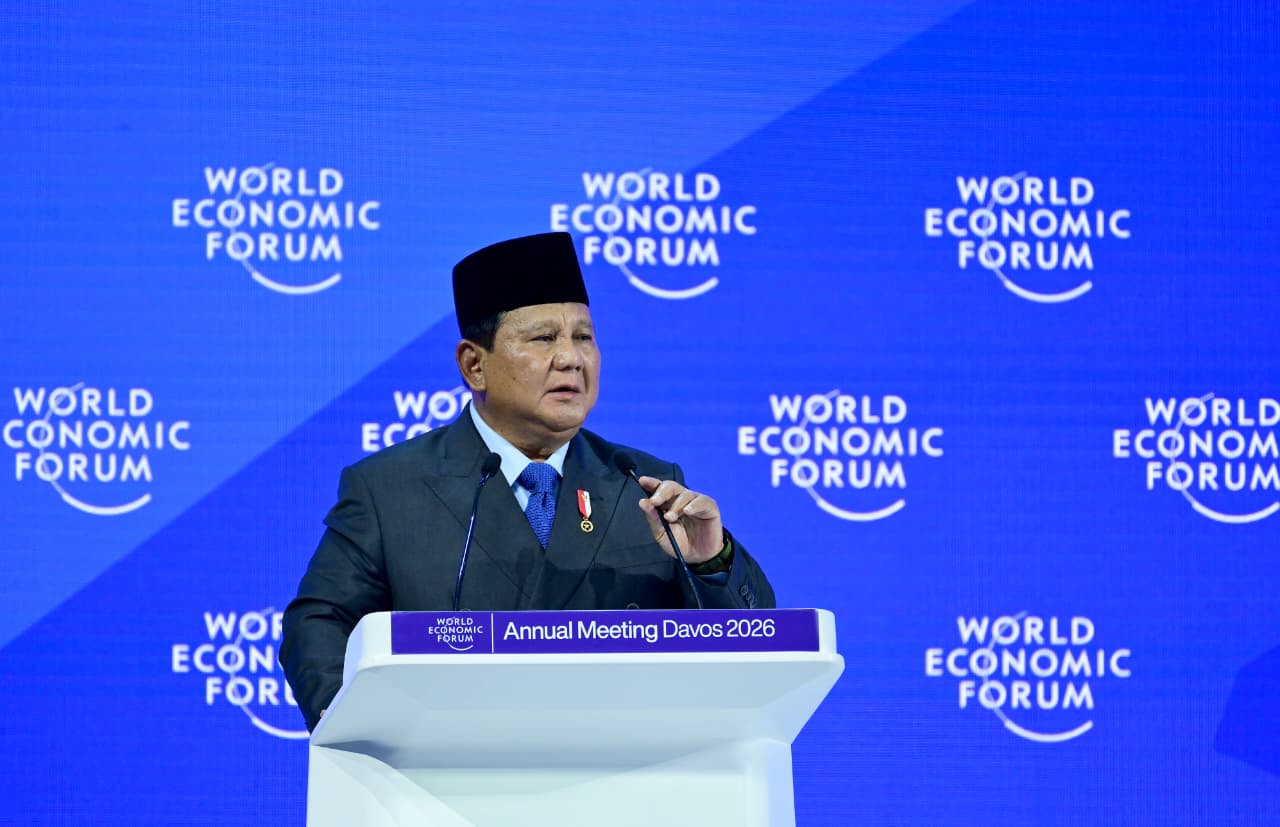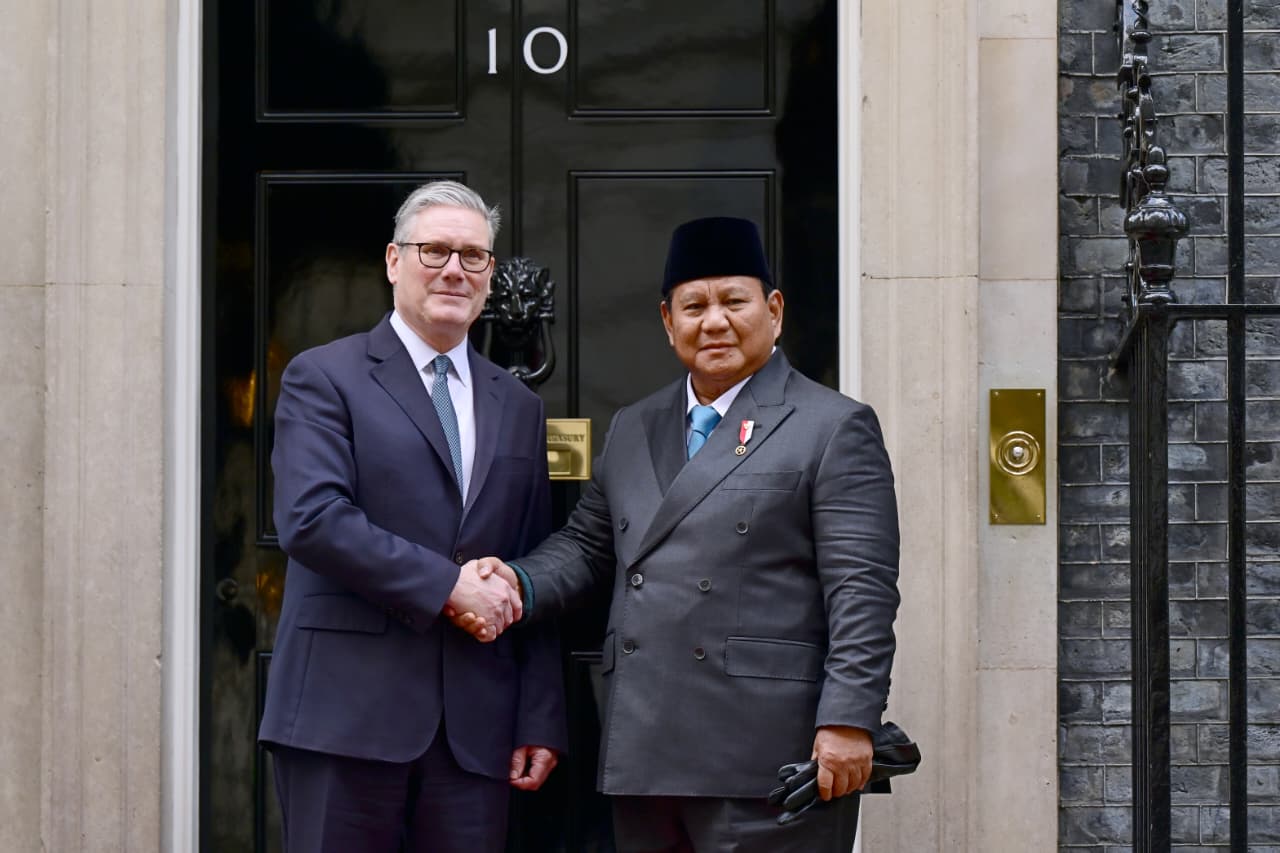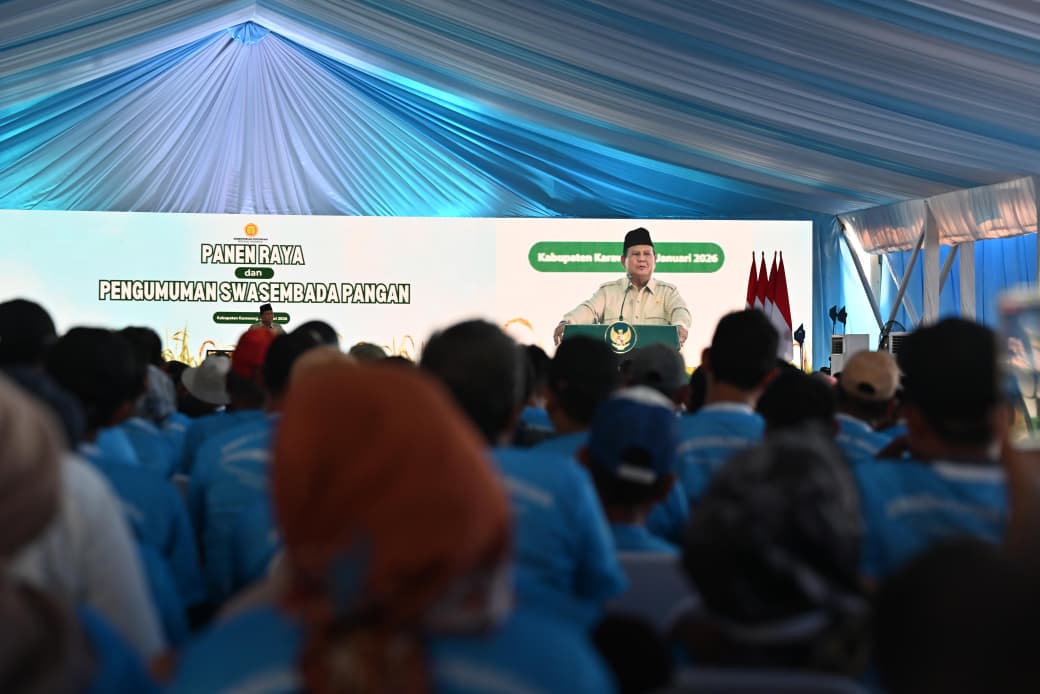Address of the President of the Republic of Indonesia on the Presentation of the Government Statement on the Bill on the State Budget for the 2022 Fiscal Year and its Financial Note Before the Plenary Session of the House of Representatives of the Republic of Indonesia, 16 August 2021
Bismillaahirrahmaanirrahiim,
Assalaamu’alaikum warahmatullaahi wabarakaatuh,
Good morning,
May peace be upon us all,
Om Swastyastu,
Namo Buddhaya,
Greetings of Virtue,
Honorable Speaker, Vice Speakers, and Members of the House of Representatives of the Republic of Indonesia,
Honorable Speaker, Vice Speakers, and Members of the Regional Representative Council of the Republic of Indonesia,
Honorable Heads, Vice Heads, and Members of State Institutions,
Honorable Ministers of the Indonesia Onward Cabinet, Heads of Government Institutions, Commander of the Indonesian National Defense Forces, Chief of the Indonesian National Police, and Attorney General.
Distinguished Ladies and Gentlemen, and My Fellow Citizens.
To date, the COVID-19 pandemic has not come to an end. In 2022, we are still going to face great uncertainties. We also have to be prepared to face other global challenges, including the threat of climate change, increased geopolitical dynamics as well as uneven global economic recovery.
Therefore, the 2022 State Budget must remain anticipative, responsive, and flexible in responding to uncertainties, while still reflecting optimism and cautiousness.
The State Budget plays a central role in guaranteeing public safety and at the same time acts as a driver of economic recovery lever. Since the beginning of the pandemic, we have been utilizing the State Budget, as a countercyclical instrument aimed to maintain the balance of brake and gas, to control COVID-19 transmission, to protect the vulnerable, and to boost the sustainability of business world.
This strategy yields positive results. The growth machine that was stagnant at the beginning of the pandemic has been set in motion. In the second quarter of 2021, Indonesia’s economy is able to grow by 7.07 percent with a controlled inflation rate of 1.52 percent (YoY).
The momentum of this achievement must be maintained. Structural reforms must be continuously strengthened. The Law on Job Creation, the Indonesia Investment Authority (INA), and the Risk-based Online Single Submission (OSS) system are the advanced leaps that greatly contribute to the increase of productivity, enhancement of investment and export competitiveness, creation of meaningful employment, and sustainable economic recovery.
Distinguished Ladies and Gentlemen,
Focusing on this strategy, the Government upholds the theme of the 2022 fiscal policy “Economic Recovery and Structural Reforms”. We will stabilize socio-economic recovery as the foundation reinforcement for supporting more optimal structural reforms.
Structural reforms are very fundamental to recover and accelerate post-pandemic economic growth, since Indonesia should not grow stagnantly, but rapidly and sustainably.
To that end, productivity must be increased. It can be achieved if the quality of human resources is also improving. This is strengthened by a more even connectivity and an accelerated infrastructure development, including digital infrastructure, energy and food that encourage industrialization, and support over conducive legal ecosystem and bureaucracy for business world.
Honorable Speaker, Vice Speakers, and Members of the House,
Based on structural reform policies and by taking into account the dynamics of the COVID-19 pandemic in Indonesia, the macroeconomic indicator assumptions that the Government uses in 2022 are as follows:
The 2022 economic growth is estimated in the range of 5.0 to 5.5 percent. We will exert maximum efforts to achieve the growth target’s ceiling of 5.5 percent. However, we must remain vigilant because the development of COVID-19 is still highly dynamic. We will utilize all resources, scientific analysis and experts’ opinion to continuously control the pandemic. Therefore, the recovery of economy and social welfare will be maintained and continue to be accelerated and strengthened.
This economic growth rate also illustrates the recovery projection that is quite robust, supported by investment and export growth as a result of the implementation of structural reforms. However, vigilance remains essential considering global and domestic uncertainties may contribute risks for future economic growth.
Inflation will be maintained at the level of 3 percent, reflecting increased demand, both due to economic recovery and improvement in people’s purchasing power. The Rupiah is estimated to average in the range of Rp14,350 against US dollar, and the interest rate of the 10-year Government Securities is estimated at around 6.82 percent, reflecting Indonesia’s economic fundamentals and the influence of global dynamics. The Indonesian Crude Price (ICP) is estimated to be at US$63 per barrel. Oil and gas liftings are estimated to reach 703,000 barrels and 1,036,000 barrels of oil equivalent per day, respectively.
Honorable Speaker, Vice Speakers, and Members of the House,
By observing the dynamics of the economy and developments in COVID-19 handling, the fiscal policy architecture must be anticipative and responsive, while maintaining a balance between countercyclical capabilities and risk control efforts so that long-term fiscal sustainability can be maintained.
Therefore, fiscal consolidation and reforms must continue to be carried out in a comprehensive, gradual, and measurable manner; including the strengthening of the state revenues and the improvement of expenditures as well as prudent and vigilant financing management to realize a fiscal management that is sounder, more resilient, and able to maintain future economic stability.
The 2022 fiscal consolidation will focus more on supporting the implementation of structural reforms, particularly the acceleration of human resource development through reforms in the fields of health, social protection, and education. Structural reforms are also directed at improving the economic foundation through regulatory and bureaucratic reforms and sectoral support that drives growth. The Government also continues to demonstrate its commitment to reducing poverty, especially eliminating extreme poverty, and reducing inequality.
Fiscal reforms will also continue to be carried out through revenue optimization, strengthening of quality spending or spending better, and financial innovations. Revenue optimization efforts are made through potential exploration, tax base expansion, improvement of taxpayer compliance, and asset management optimization as well as service innovations. Thus, the tax ratio can be improved to strengthen fiscal space, while protecting the interests of the common people.
Efforts in strengthening quality spending are made through spending control to make it more efficient, more productive, and to produce a strong multiplier effect on the economy as well as to make it more effective in supporting priority programs and improving people’s welfare.
Financial innovations are focused on encouraging a prudent and flexible financing through more integrated Public-Private Partnership (PPP) in infrastructure financing, strengthening of the role of INA, and deepening of the state bond market. In addition, 2022 fiscal policy is also aimed at providing a solid foundation for fiscal consolidation, gearing toward a maximum deficit of 3 percent of Gross Domestic Product (GDP) in 2023.
Honorable Speaker, Vice Speakers, and Members of the House,
The Government has formulated an expansive 2022 fiscal policy to support the acceleration of socio-economic recovery that will still be consolidating to achieve a healthy State Budget by strengthening structural reforms.
Therefore, there are six main focuses of the Government in the 2022 State Budget: First, to continue efforts to control COVID-19 while still prioritizing the health sector. Second, to maintain the sustainability of social protection programs for the poor and vulnerable. Third, to strengthen the agenda for developing excellent, full of integrity, and competitive human resources. Fourth, to continue infrastructure development and to improve technological adaptability. Fifth, to strengthen fiscal decentralization in order to improve and promote interregional welfare equality. Sixth, to continue budgeting reforms by implementing zero-based budgeting in order to encourage a more efficient spending, to strengthen synergies among central and regional governments, to focus on priority and result-based programs, as well as to be anticipative against uncertainty.
Distinguished Ladies and Gentlemen,
State Expenditures in the 2022 State Budget Bill are planned at Rp2,708.7 trillion, which includes Central Government Expenditures of Rp1,938.3 trillion and Transfers to the Regions and Village Funds of Rp770.4 trillion.
The health budget is planned at Rp255.3 trillion, or 9.4 percent of state expenditures. It will be aimed at continuing the handling of the pandemic, reforming healthcare system, accelerating stunting reduction, and continuing the National Health Insurance program.
On COVID-19 handling, the Government sets its focus on, among others, anticipating the risk of COVID-19 impacts through testing, tracing, and treatment efforts; continuing COVID-19 vaccination drive; as well as intensifying efforts to disseminate information on health protocols and oversee them.
We have to be able to utilize this pandemic as a momentum to improve and reform Indonesian health system. We must be capable of encouraging domestic vaccine production and the development of a strong and competitive pharmaceutical industry.
We also have to reorganize the health service facilities from upstream to downstream, from central to regional levels; to transform primary care and referral care; to improve health security; to improve the quality of health workers and redistribute them; as well as to develop information technology on health services.
The Government also maintains the continuity of National Health Insurance program and improves the quality of its services. Furthermore, acceleration of stunting reduction is done through expansion of scopes in all regencies/municipalities throughout Indonesia, by strengthening synergies among institutions.
A total of Rp427.5 trillion of social protection budget is allocated to aid the poor and vulnerable in fulfilling their basic needs. In the long term, it is expected to cut the poverty chain.
In this regard, the efforts to support the reforms of social protection program will be directed to: continuing the improvement of Integrated Data on Social Welfare and synergizing it with related data; supporting gradual and measurable reforms on social protection; supporting Social Security Schemes of Laid-off Workers in accordance with Law on Job Creation; as well as improving the quality of the implementation of social protection and developing adaptive social protection scheme.
In order to improve productivity and quality of human resources, a total of Rp541.7 trillion of education budget is prepared. The development of human resources continues to be our priority agenda. Indonesia must be able to make the most of the demographic dividend and stand ready to face technological disruption. We must prepare productive, innovative, and globally competitive human resources while still practicing values of the state ideology Pancasila, observing good deeds, and preserving national cultural identity.
The policy is directed to continue education reforms with focus on three matters: improving the quality of human resources by strengthening Early Childhood Education and Sekolah Penggerak (Activator School) program; ensuring equal distribution of education infrastructure and facilities; as well as solving educational mismatch by strengthening vocational education, developing applied research and innovations that are linked to industry and society, internship program, and teaching industry; as well as implementing Merdeka Belajar (Freedom to Learn) program.
The Government is committed to intensifying government investment in the education sector, including: supporting the expansion of scholarship program, adopting information and communication technology, advancing culture, strengthening world-class universities, as well as developing research and innovations.
A total of Rp384.8 trillion is allocated for infrastructure development. The infrastructure development is directed to: supporting the strengthening of basic need provision; supporting increased productivity through connectivity and mobility infrastructure; providing energy and food infrastructure that are affordable, reliable, and environmentally friendly; as well as ensuring equal distribution of Information and Communication Technology infrastructure and access.
In order to support the realization of infrastructure development target, a strategy to mix budget through blended finance will continue to be implemented. The KPBU scheme becomes a financing model that continues to be offered. The blended finance strategy between Ministries/Institutions, State-Owned Enterprises (SOEs), and private parties will be continuously strengthened.
In 2022, the budget of Transfer to the Regions and Village Funds planned at Rp770.4 trillion will be focused on: improving the quality of regional expenditures to speed up welfare improvement and equality achievement; continuing the implementation of policies on the use of General Transfer Fund in order to improve the quality of public infrastructure in the regions, to recover the economy in the regions, to develop human resources in the education sector and to increase spending priorities in the health sector; improving effectiveness of the use of Special Transfer Fund through disbursement of contract-based Special Allocation Fund for Infrastructure and Operational Special Allocation Fund in order to stimulate improvement of output and outcome achievements, and to support service quality improvement; continuing the strengthening of budget planning synergy through enhancement of budget harmonization among Ministries/Institutions and the Transfer to the Regions and Village Funds; and prioritizing the use of Village Funds to recover villages’ economy through social protection program and COVID-19 handling measures as well as to support priority sectors.
The Government will also continue to strengthen quality control on the Transfer to the Regions and Village Funds to improve and equalize access to public services throughout Indonesia as well as to ensure national priority programs implemented by the regional governments run in an efficient, effective, transparent, and just manner.
A better targeting in management of Special Autonomy Fund for Papua and West Papua provinces has also been adopted. The issuance of Law Number 2 of 2021 brings a breath of fresh air for the better transformation of Special Autonomy Fund’s management. The extension of Special Autonomy Fund and the increased figure to 2.25 percent of the National General Allocation Fund ceiling are conjoined with the improvement and better targeting of policies on allocation, disbursement, and management schemes of Special Autonomy Fund. These efforts are expected to bring significant impacts to the improvement of the welfare of the Papuan.
Various policies on state expenditures, as a whole, are expected to push for realization of development targets for 2022, namely, an open unemployment rate of 5.5 to 6.3 percent; poverty rate in the range of 8.5 to 9.0 percent, with an emphasis on eliminating extreme poverty; and gini ratio in the range of 0.376 to 0.378; as well as human development index ranging from 73.41 to 73.46.
Honorable Speaker, Vice Speakers, and Members of the House,
To achieve the aforementioned development goals, it is essential to increase the state revenues in 2022 to Rp1,840.7 trillion, sourced from tax revenues amounting to Rp1,506.9 trillion and Non-Tax State Revenues amounting to Rp333.2 trillion. The mobilization of state revenues is carried out through optimization of tax revenues as well as management reforms of Non-Tax State Revenues.
We need to continue the tax reforms in order to promote independence in financing the development. The tax reforms aim to create justice for all the people of Indonesia and are carried out through expansion of tax base, improvement of taxpayer compliance as well as enhancement of tax management and administration in order to increase tax ratio. Furthermore, provision of various proper and measurable tax incentives is expected to be able to encourage acceleration of recovery and improvement of national investment competitiveness as well as to spur economic transformation.
Meanwhile, the efforts to increase Non-Tax State Revenues continue to be made through improvement of the Non-Tax State Revenues planning and report processes by using integrated information technology; strengthening of the Non-Tax State Revenues management and control; optimization of asset management; intensification of collection and settlement of Non-Tax State Revenues arrears; and encouraging service innovation while still maintaining service quality and affordability.
Honorable Speaker, Vice Speakers, and Members of the House,
The budget deficit of 2022 is planned at 4.85 percent of GDP or Rp868.0 trillion. The deficit plan of 2022 plays an important role in achieving fiscal consolidation given that the budget deficit of 2023 is expected to return to the highest level of 3 percent of the GDP.
The budget deficit of 2022 will be financed by making use of financing sources that are secured and prudently managed by maintaining fiscal sustainability. The commitment to maintain fiscal sustainability is carried out to keep the debt ratio within controlled limit.
Distinguished Ladies and Gentlemen,
This concludes the Government Statement on the Bill on the State Budget for the 2022 Fiscal Year and Its Financial Note. It is our hope that the deliberation of the 2022 State Budget Bill will be carried out in a constructive manner to make Indonesia an advanced nation based on Pancasila and the 1945 Constitution.
May Allah the Almighty bestow His blessings upon us to carry out the tasks and mandate placed by the entire people of Indonesia.
Long Live the Republic of Indonesia!
Long Live the Land of Pancasila!
Independence!
I thank you,
Wassalaamu’alaikum warahmatullaahi wabarakaatuh,
Om Shanti Shanti Shanti Om,
Namo Buddhaya.
Jakarta, 16 August 2021
PRESIDENT OF THE REPUBLIC OF INDONESIA
JOKO WIDODO
(Translation by Office of the Assistant to the Deputy Cabinet Secretary for State Documents and Translation)








